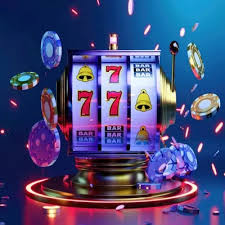
Welcome to the fascinating universe of LUCKY STAR, a beloved anime and manga series that has captivated audiences around the world. Known for its unique blend of humor, character-driven storytelling, and relatable slice-of-life experiences, LUCKY STAR has garnered a loyal fanbase since its inception. This article will take you on a journey through the intricate details of LUCKY STAR, examining its characters, themes, and the cultural impact it has made. For LUCKY STAR More details on this enchanting series, read on!
Origin and Development
LUCKY STAR is based on a four-panel comic strip written and illustrated by Kagami Yoshimizu. It first began serialization in 2004 in the manga magazine Comptiq, quickly gaining popularity for its quirky humor and relatable characters. The series was adapted into an anime by Kyoto Animation in 2007, which propelled it into mainstream popularity. LUCKY STAR’s unique art style and character designs contributed to its distinct appeal, helping it stand out in the crowded landscape of anime.
Characters that Define LUCKY STAR
The charm of LUCKY STAR lies largely in its characters, each bringing their unique personality traits and quirks to the series. The central character, Konata Izumi, is a high school girl with a deep passion for anime and video games. Her laid-back attitude, coupled with her slightly lazy approach to life, epitomizes the classic otaku culture.
Other prominent characters include:
- Kagami Hiiragi: Konata’s classmate, known for her tsundere personality, often providing a counterbalance to Konata’s carefree spirit.
- Tsukasa Hiiragi: Kagami’s younger sister, who is more gentle and clumsy, often engaging in humorous situations due to her innocence.
- Misao Fujperfect: A classmate with a strong sense of justice, often involved in comedic misunderstandings related to her ideals.
- Yutaka Kobayakawa: Known for being sweet and amiable, she adds a layer of warmth and innocence to the group.

The interactions among these characters create a rich tapestry of friendship, humor, and everyday experiences that resonate with a wide audience, making them relatable and endearing.
Thematic Elements
LUCKY STAR excels in showcasing the nuances of daily life through its slice-of-life narrative style. Themes of friendship, school life, and the trials of adolescence are prevalent throughout the series. The humor is often lighthearted, filled with pop culture references, and it often involves meta-commentary on the anime and gaming culture, which gives fans something to connect with.
Another key element in LUCKY STAR is the exploration of individuality within a community. Each character represents different aspects of Japanese youth culture, from the serious student to the laid-back gamer, demonstrating how diverse personalities interact and support each other in their daily lives.
Cultural Impact and Fanbase
Since its release, LUCKY STAR has created a profound cultural impact within and outside Japan. The series has inspired a plethora of merchandise, including figures, clothing, and video games, which have further solidified its place in the hearts of fans. Iconic catchphrases and scenes from the series have transcended the anime community, becoming part of Japanese pop culture.
Moreover, the series has led to an active and passionate fanbase that engages in fan art, cosplay, and conventions. Many fans appreciate not just the humor of LUCKY STAR, but also its underlying messages about friendship, loyalty, and the everyday struggles of youth. The character interactions and relatable situations resonate deeply, fostering a community that celebrates these themes.
Conclusion
LUCKY STAR remains a beloved classic in the anime and manga world, thanks to its unique blend of humor, character-driven stories, and relatability. It encapsulates the essence of youth with its portrayal of friendship and community, leaving a lasting impression on its audience. Whether you are a long-time fan or a newcomer, LUCKY STAR continues to charm and captivate, inviting viewers to immerse themselves in its delightful world.
As we continue to explore the evolving landscape of anime and its impact on global culture, LUCKY STAR will undoubtedly remain a shining example of how stories can connect people from different walks of life through shared experiences and laughter.
